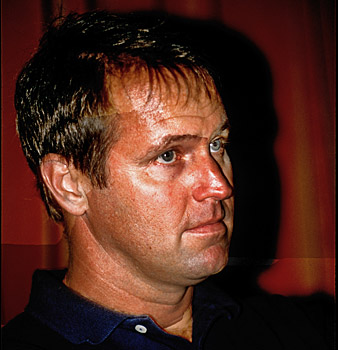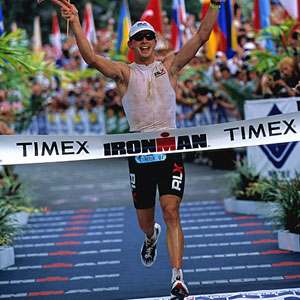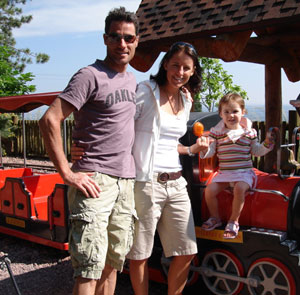Part 3: Craig Alexander opens a new era with CTS and triathlon
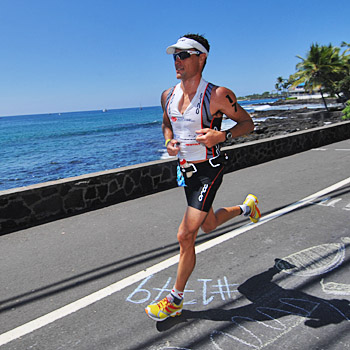
Craig Alexander: I have always been self coached. Like anything, the minute you think you know it all. you stop improving. When I won my first world title at Clearwater in 2006, by no means mentally did I think I had realized all my potential. When I qualified for Kona, I knew things would be different when I stepped up in distance. I thought I would need to improve performance on the bike.
The road to Carmichael
CA: I worked with Franko Vatterot, the team manager for Tri Dubai, for six months in 2006 and I found him very professional. When I started to step up from short course racing, I thought the bike is the longest portion of the race and that was a key area I could improve. By then, Franko was working with Retul (bike fit systems) and I went to them for a bike fit. Franko then arranged for me to meet Chris Carmichael.
Carmichael was great for Alexander’s confidence stepping into new arena of Ironman – CA:
CA: I did some testing in August of ‘07, only two months out from Kona. I had already settled on my training program. When I showed Chris my program, he thought it was a good overall volume and structure. But he also made really good suggestion for tweaks. The main thing was, when you’re on your own, you gain confidence when you hear it from an expert that you are on right track. When you get positive feedback, it reinforces your confidence. Sports, like everything in life, is totally about confidence. To have one of the world’s leading bike coaches and sports coaches tell you are on track and made killer suggestion gave me the confidence you need when you step into a new challenge like Ironman.
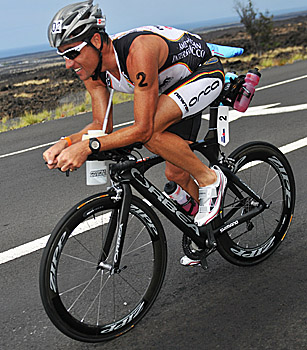
Nick White on why Crowie sought a coach
Nick White: Craig is one of the smartest and well prepared guys out there. The plan he worked on last 10 years was working really well. From his perspective, the jump up to the Ironman required a higher level of training and he was the first to say he was coming to the last few years of his personal triathlon career, so why take any risks? He wanted another set of eyes on his program, to make sure his training had the best chance of success.
Alexander describes Nick White as ‘a perfect fit.’ — CA:
I think the main strength Nick brings to the table is that he had a background in: swimming and running as well as cycling. He brought it all together. I come from a place where I do my own thing and do not answer to anyone. Nick was a perfect fit for me in terms of knowledge and temperament. In my mind, all good coaches know how to deal with different personalities and make good observations on running. Nick left me to own devices. He knew I was self sufficient, and there was no need to look over my shoulder every day. He knew I knew what I am doing on the bike. He would download the power files from the SRM meter on the bike, have a look at it, then gives me feedback. He might say, ‘That one hit the target for that day’s training.’ I think the main thing was good constant feedback. Some like their coach to look over the shoulder and offer motivation and try to rev them it up. I do not need motivation to do the work. I let an expert in the field have a look at it. He might say, ‘That was a good session, but it did not hit the target today, so I think you need a rest.’ What I wanted was that extra perspective removed from myself, to observe my training and suggest when I might need a rest and analyze how I was coping with the training.
Crowie needed to maintain speed and intensity for Ironman- NW:
It was a big leap to Ironman. We feel that it is very important to continue to incorporate short, very high intensity efforts even though the racing intensity would come down. Ironman intensity is significantly lower than half Ironman intensity. You want to make sure that you still do high intensity work.
Nick White and Carmichael agree – Crowie was the new Ironman paradigm – NW:
Chris and I talked about it multiple times when we started to work with Craig. He is going to be the prototypical successful Ironman. Someone who is able to come from Olympic distance triathlon background, a winner of the big money Life Time Fitness Triathlon like Craig, they will have better success rate at Ironman from here on out. They are physiologically gifted with speed. From there, we can easily give them the necessary amount of endurance to take them through an Ironman or half Ironman. Beyond a certain level, you can’t train speed. Craig still does mile repeats and 800 repeats and 1km repeats. He still does it to maintain speed, just not as exclusively as he once did it. But the key to a good Ironman run are the bike workouts at high power, high resistance level, maximum effort, at a really high heart rate and breathing rate to increase lactate levels.
Nick White is up to date on all the latest technical matters. 'But the final decision was always mine.’ – CA:
One reason Nick is so valuable is because he is up to date with latest products out there, and has a strong idea what’s a gimmick and what’s for real. He is well read on bike and wheel technology. He is first guy I e-mail to evaluate the latest stuff, what they are testing. These studies come in handy when racing different courses. But this is a collaboration and I hold the final vote. For example, Nick wanted me to wear a time trial helmet at Kona. Once again, I get the information. There was no question an aero helmet was more aerodynamic and theoretically desirable. But Ironman Hawaii is obviously not like a Tour de France time trial where the riders are going 35 miles for just one hour. In Kona, you are out there over four hours and I like to keep my head cool. If you look at it, depending on the wind, you’re riding at a 40 km/hour average. It was a tough decision, but I wanted to err on the conservative side. I had not been to Hawaii before. I think I could have worn a time trial helmet that first time because it was not as hot as usual. But you never know how conditions will develop. So I always like to get an outside perspective on anything – helmet type, wheel selection, nutrition, all the pros and cons. I like to think I have access to all that information. Nick like any top rank coach monitors everything.
Crowie’s exercise physiology background is his ace in the hole.- NW:
Craig comes from the theoretical side of things. He has an exercise physiology background and has an undergraduate degree and knows the training loads and intensity he can take. We each put together a training program and compare notes about periodization and find our programs are really well matched. He also know competitors strengths and weaknesses, who to mark, who to keep track of, which helps him on the run. He know he has the speed and confidence in his run and who he can take minutes out of –even good runners.


